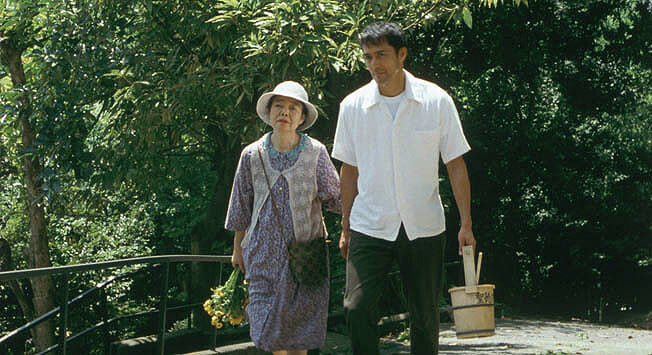Still Walking (DVD)

Director: Hirokazu Kore-eda
Writer: Hirokazu Kore-eda
Cinematographer: Yutaka Yamasaki
Starring: Hiroshi Abe, Yui Natsukawa, You, Kazuya Takahashi
Studio/Runtime: Criterion/114 mins.
In every sense of the word except one, Hirokazu Kore-eda’s Still Walking is a classic. The film elegantly covers the one-day reunion of the Yokoyama family on the 15th anniversary of the death of the family’s oldest son. As is the tradition in this sort of picture, the reunion is bittersweet, with everyone attempting to play the affectionate roles they’re supposed to, while being unable to get past the anger and difficulties of the past. It’s a story of small words and gestures that mean a lot, told in a simple way that’s specific to this individual family but universal in its meanings. A classic, albeit one that was first released in 2008 and has been largely ignored since then.
Much of the film’s tone comes from its style, which owes a huge debt to Yasujiro Ozu with its almost never-moving camera and frequent tatami-mat level framings. It even features “pillow shot” interludes, buttressing its scenes with unrelated moments of beauty around the city—one of Ozu’s trademarks. But while the family focus and measured pace are taken from Ozu, Kore-eda’s not just mimicking his style, and draws not only from the history of Japanese cinema (the influence of Mikio Naruse and Kenji Mizoguchi are also hard to miss) but also from other traditions as well, particularly documentaries. Still Walking is filled with overlapping dialogue and complex blocking, with characters weaving in and out of scenes both physically and verbally, making it easy to get lost in the reality of it all. There’s a special power to how Kore-eda develops the space off-screen that’s related to the way he’s more interested in what characters are unwilling or unable to say to each other than what is actually spoken.
What Kore-eda does with this carefully drawn world where tradition meets the contemporary is speak candidly about time and loss and what he thinks is really important in life. Death hangs over the film, and while this leads to some obvious melancholy, there’s also a sense of hope in change and the passage of time. Where Ozu’s pillow shots seemed nostalgic, Kore-eda’s are whimsical and celebratory, and lying within the film’s heavy themes and disappointing relationships is a real celebration of living life. It’s no surprise that the most passionate moments of Still Walking come when the family is eating or preparing food and discussing the ephemeral pleasures that lie in simply being human. This is no requiem dirge, and while the film shows a reverence for the deceased, it’s the characters who refuse to move on that receive Kore-eda’s heaviest criticism.
Nothing much happens in Still Walking. At the end of the day, the Yokoyama family is just the same as it was at the beginning, characters haven’t resolved their issues, and, as the film’s epilogue shows, nothing that happened on that day had any direct effect on any characters’ life. But that doesn’t matter, because the film’s not just about that one day. It instead focuses on both regrets of the past and plans for the future. It’s about what it means to be a family, with all of the joy and disappointment that comprises, and if Still Walking doesn’t say anything particularly new on the subject, at least what it does say is said profoundly well.
GET PASTE RIGHT IN YOUR INBOX
The best music, movies, TV, books, comedy and more.